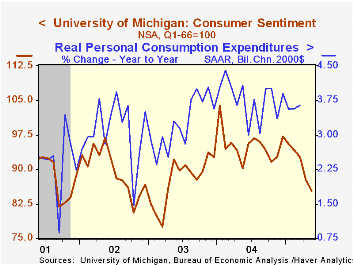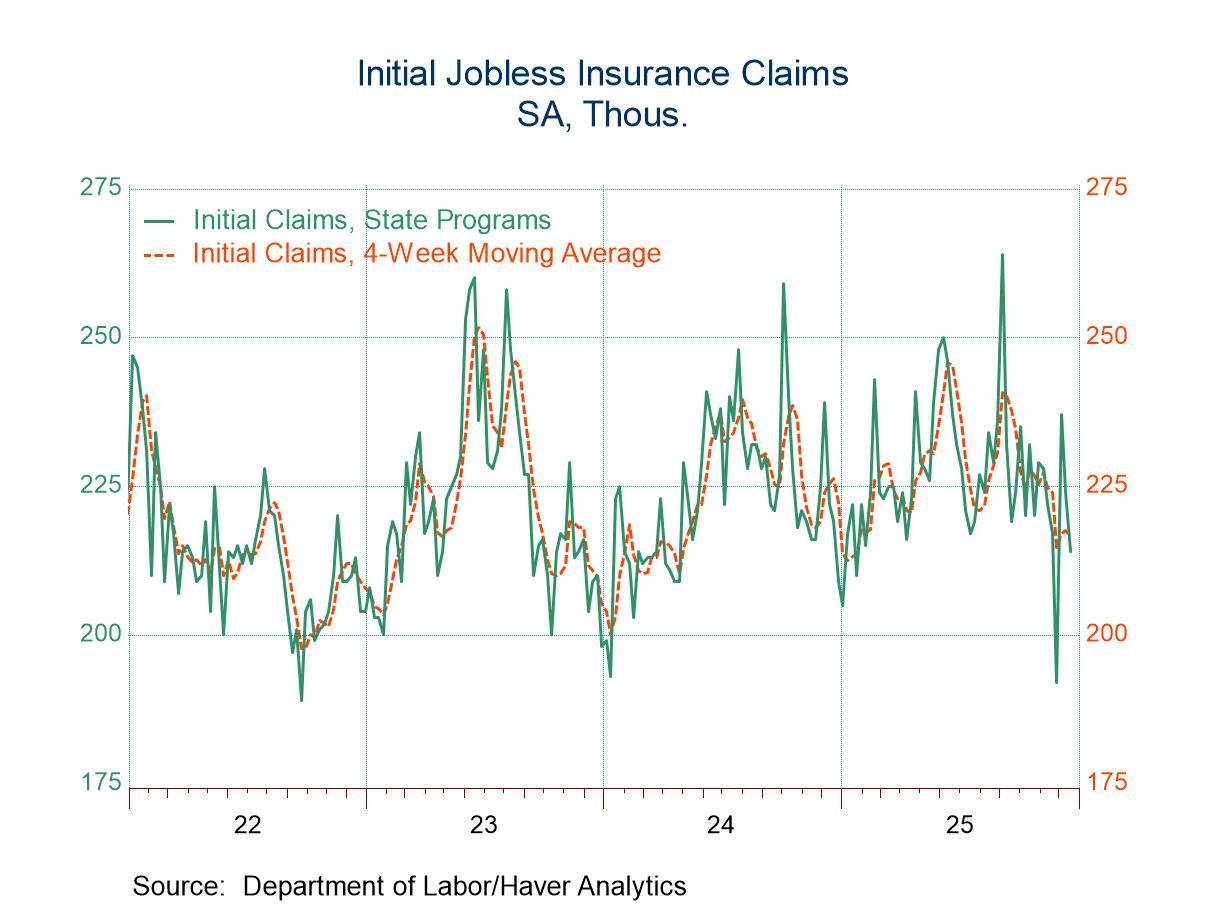 Global| May 13 2005
Global| May 13 2005U.S. Consumer Sentiment Depressed
by:Tom Moeller
|in:Economy in Brief
Summary
The University of Michigan's reading of consumer sentiment in May fell 2.7% from April to 85.3. The decline contrasted to Consensus expectations for stability at 88.0. Sentiment has fallen in each of the last five months and is down [...]

The University of Michigan's reading of consumer sentiment in May fell 2.7% from April to 85.3. The decline contrasted to Consensus expectations for stability at 88.0.
Sentiment has fallen in each of the last five months and is down 17.8% from the January '04 peak. During the last ten years there has been a 75% (inverse) correlation between the level of consumer sentiment and the y/y change in real PCE, although the correlation has fallen in recent years.
Consumer expectations were depressed mostly by a sense that unemployment would rise which generated expectations that real family income would decline, helped lower by an expected acceleration in price inflation.
The reading of current economic conditions fell 1.1% for the fourth consecutive monthly drop and reflected a sharp decline in the reading of personal finances to the lowest level since December 2003.
The University of Michigan survey is not seasonally adjusted.The mid-month survey is based on telephone interviews with 250 households nationwide on personal finances and business and buying conditions. The survey is expanded to a total of 500 interviews at month end.
| University of Michigan | May | April | Y/Y | 2004 | 2003 | 2002 |
|---|---|---|---|---|---|---|
| Consumer Sentiment | 85.3 | 87.7 | -5.4% | 95.2 | 87.6 | 89.6 |
| Current Conditions | 103.3 | 104.4 | -0.3% | 105.6 | 97.2 | 97.5 |
| Consumer Expectations | 73.7 | 77.0 | -9.7% | 88.5 | 81.4 | 84.6 |
Tom Moeller
AuthorMore in Author Profile »Prior to joining Haver Analytics in 2000, Mr. Moeller worked as the Economist at Chancellor Capital Management from 1985 to 1999. There, he developed comprehensive economic forecasts and interpreted economic data for equity and fixed income portfolio managers. Also at Chancellor, Mr. Moeller worked as an equity analyst and was responsible for researching and rating companies in the economically sensitive automobile and housing industries for investment in Chancellor’s equity portfolio. Prior to joining Chancellor, Mr. Moeller was an Economist at Citibank from 1979 to 1984. He also analyzed pricing behavior in the metals industry for the Council on Wage and Price Stability in Washington, D.C. In 1999, Mr. Moeller received the award for most accurate forecast from the Forecasters' Club of New York. From 1990 to 1992 he was President of the New York Association for Business Economists. Mr. Moeller earned an M.B.A. in Finance from Fordham University, where he graduated in 1987. He holds a Bachelor of Arts in Economics from George Washington University.






